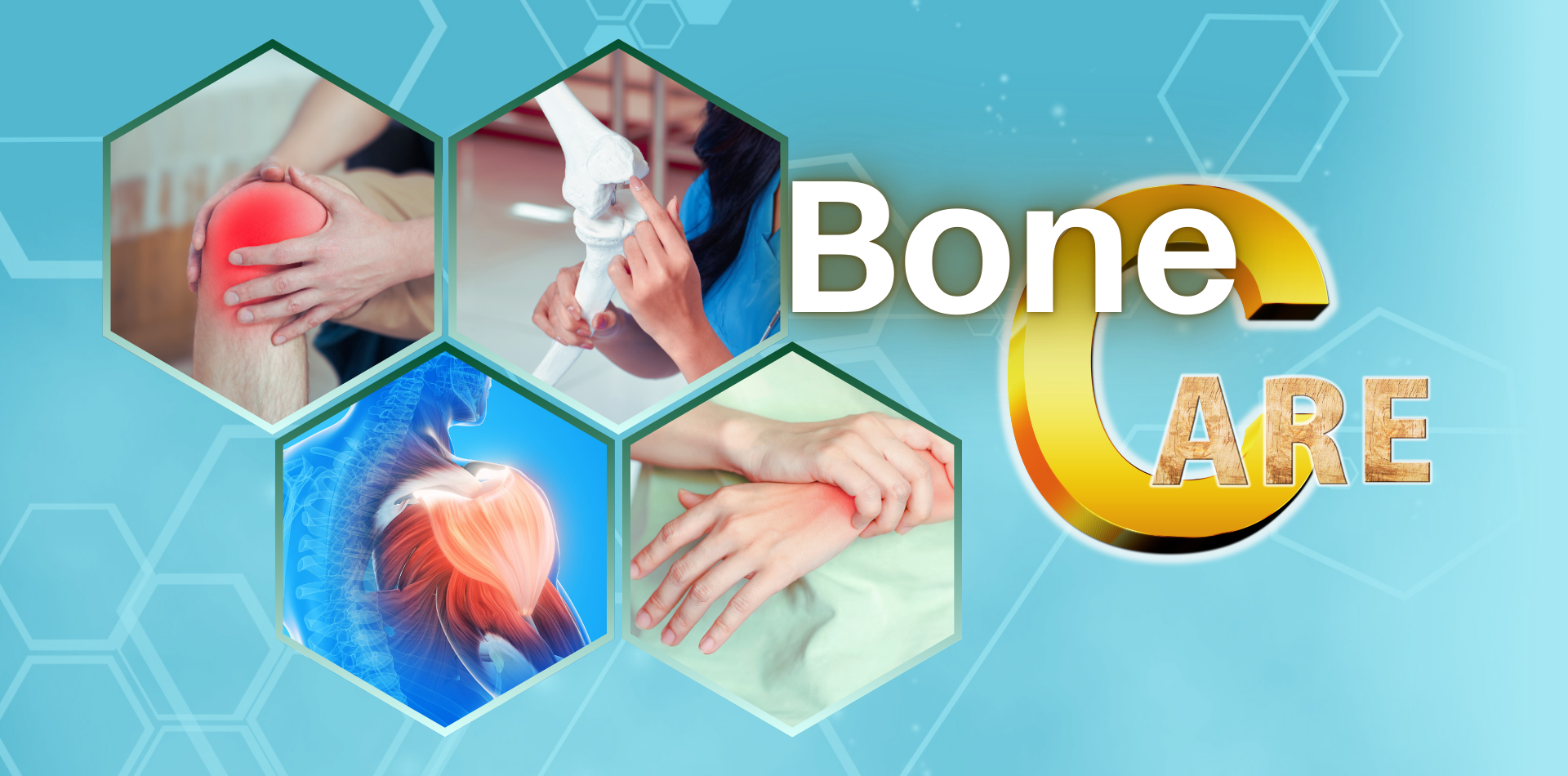Bone Health and Care

Body bones provide structure, protect organs, base and adhere muscles, and store calcium as bones are built from top to toe of the human body. It is important to primarily take care of your bones during childhood and adolescence, so you can take every step in adulthood to protect bone health, too.
Importance of bone health
Human bones do change as new bones are made when old ones are broken down. Your body makes new bones faster at a young age, and your bone mass increases. Most people reach their peak bone mass around age 30. After that, bone remodeling continues, however, you also tend to lose slightly more bone mass as you get older. There will be certain bone morbidities like; osteoporosis, knee arthritis, knee crepitus, etc.
What affects bone health?
Many factors can affect bone health.
- The amount of calcium in your daily diet. A diet low in calcium likely diminishes bone density, early bone loss, and increases the risk of fractures.
- Sex.You're at greater risk of osteoporosis if you're a woman because women have less bone tissue than men.
- Body size. If you are skinny you are quite at risk (with a body mass index of 19 or less) or have a small body structure because you might have less bone mass to draw from as you age.
- Your bones become thinner and weaker due to age.
- Hormone levels. Excessive thyroid hormone can cause bone loss. In women, bone loss dramatically increases at menopause due to dropping estrogen levels. In men, low testosterone levels can cause a loss of bone mass as well.
- Race and family history. You're at greatest risk of osteoporosis if you're white or of Asian descent. In addition, having a parent or sibling who has osteoporosis puts you at greater risk especially if you also have a family history of bone fractures.
- Eating disorders and other conditions. Severely restricting food intake and being underweight weaken bones in both men and women. In addition, weight-loss surgery and conditions such as celiac disease can affect your body's ability to absorb calcium.
- Physical activity. Physically inactive people have a higher risk of osteoporosis than their more active counterparts.
- Tobacco use and alcohol consumption. Addicted or often tobacco use contributes to weak bones. Similarly, binge drinking and chain smoking increase the risk of osteoporosis.
- Certain medications. Long-term use of corticosteroid medications, such as prednisone, cortisone, prednisolone, and dexamethasone, is damaging to bone. Other drugs that might increase the risk of osteoporosis include aromatase inhibitors to treat breast cancer, selective serotonin reuptake inhibitors, methotrexate, some anti-seizure medications, such as phenytoin (Dilantin) and phenobarbital, and proton pump inhibitors.
How to keep your bones healthy?
Here is a list of a few simple steps to prevent or slow bone loss.
- Consume plenty of calcium in your diet. For adults aging 19 - 50 years and men 51 - 70, the Recommended Dietary Allowance (RDA) is 1,000 milligrams (mg.) of calcium per day and 1,200 mg. for women aging 51 and older and men aging 71 and older per day.
Good sources of calcium come from dairy products, almonds, broccoli, kale, canned salmon with bones, sardines, and soy products, such as tofu.
- Pay attention to vitamin D. Your body needs vitamin D to absorb calcium. For adults aging 19 - 70, the RDA of vitamin D is 600 international units (IUs) per day and up to 800 IUs per day for adults aging 71 and older.
Good sources of vitamin D are primarily from oily fish, such as salmon, trout, whitefish, and tuna. In addition, mushrooms, eggs, and fortified foods, such as milk and cereals, are good sources of vitamin D. Sunlight also contributes to the body's production of vitamin D.
- Daily physical activity routine. Weight-bearing exercises; walking, jogging, and climbing stairs, can help you build strong bones and slow bone loss.
- Avoid substance abuse. Don't smoke. Avoid drinking more than one alcoholic drink each day for women and two alcoholic drinks a day for men.
Enlist your doctor's help
A bone density test is recommended for those who are concerned about their bone health. Your your doctor runs the test, the results will help your doctor know your bone density and determine your bone loss rate. By evaluating this information and your risk factors, your doctor can assess whether you might be a candidate for medication to help prevent or slow bone loss.
Heart of Care, Essential Care for You
